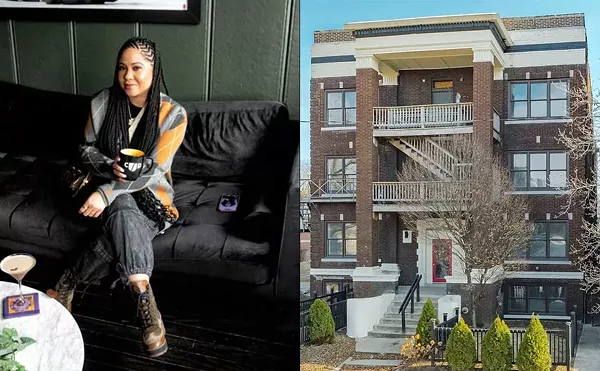
Audio By Carbonatix
[
{
"name": "GPT - Leaderboard - Inline - Content",
"component": "35519556",
"insertPoint": "5th",
"startingPoint": "3",
"requiredCountToDisplay": "3",
"maxInsertions": 100,
"adList": [
{
"adPreset": "LeaderboardInline"
}
]
}
]
Despite recent claims by Detroit Police Chief James Craig that the department does not suffer from a growing race problem, minutes from a Board of Police Commissioners meeting show his right-hand man acknowledged racial tensions in the department as early as the summer of 2015.
And, according to several people who were at the meeting, Assistant Chief Steve Dolunt seemed to dismiss the problem.
"Some whites don't like blacks, some blacks don't like whites. Some men don't like women, some women don't like blacks," said Dolunt at the July 16, 2015 event. "I've dealt with racial tension before. And I'm not the most PC person, but get over it. You're wearing blue."
For those that couldn't "deal with it," the assistant chief noted they could send a complaint up the ranks. Dolunt told the commissioners that he'd once questioned an officer who came to him directly with a problem without going through the chain of command.
"For someone in the command structure to make those type of statements goes to the heart of the situation," says Detroit Coalition Against Police Brutality spokesman Ken Reed, referring to what he perceives as the department's unwillingness to acknowledge and address the racial issues it faces. "It's not the type of attitude one should have. We expect more from people in leadership."
Dolunt's comments have surfaced during a turbulent time for Detroit police. After an officer called the citizens of Detroit "garbage" in the comments section of a news story earlier this month, pressure mounted for Chief Craig to release a report compiled by the Committee on Race and Equality (CORE) he empaneled last year. The group, chaired by a white officer and a black officer, was tasked with looking into racial problems in the department following a Facebook post by an officer that suggested the KKK headline the Super Bowl halftime show.
CORE found "top-down entrenched discriminatory practices" within the department that left many officers uncomfortable and unwilling to use the chain of command to report their complaints. It also determined many officers were dissatisfied with the department's Equal Opportunity Office.
When the CORE report was released last week, Craig characterized its findings as based on "rumor and innuendo," in part because many of the officers who levied accusations of discrimination went unnamed. The police union also cast doubt on the committee's findings, and, on Martin Luther King Day, called on Craig to disband CORE.
On Tuesday, the chief obliged, in part. Craig said he would put the committee "on hold" with the goal of restructuring it, but that what CORE "represents" would "move forward."
Some members of the Board of Police Commissioners are dismayed by the chief's handling of the situation. And they see Dolunt as a further indication of Craig's willingness to look the other way on issues of race.
"[Dolunt] has shown who he is," said Board of Police Commissioners Vice Chairperson Ricardo Moore. "I look at the chief for allowing him to exist."
The Detroit Police Department declined to comment on Dolunt's remarks.





